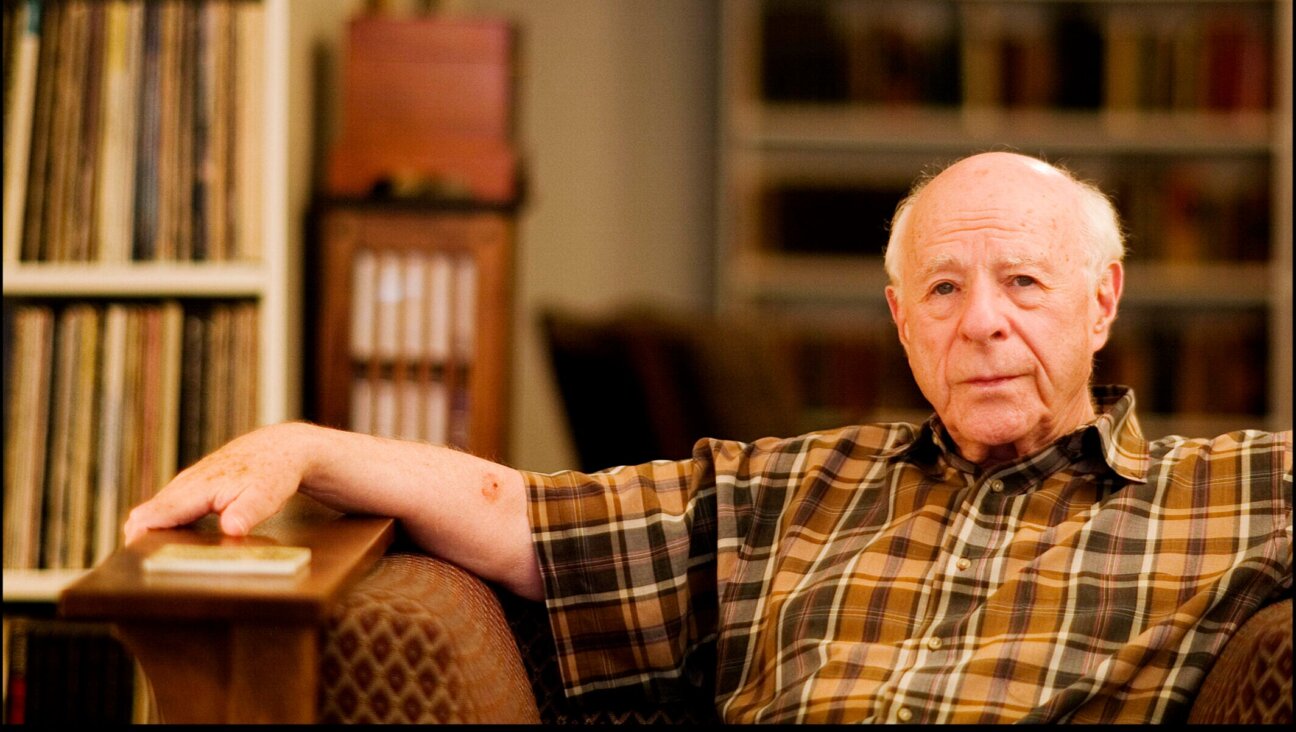Le Pen ‘Anti-Semitic’ Family Feud Deepens

Image by getty images
(Reuters) — Marine Le Pen’s far-right National Front admitted defeat on Tuesday after failing to win wide enough support to form a political group in European Parliament, dousing her ambition to lead an alliance of nationalists against Brussels.
Concurrently, a damaging public feud between Le Pen and her father Jean-Marie worsened as the 86-year-old FN founder said his daughter was wrong to have avoided alliances with other far-right parties “considered more or less beyond the pale”.
Le Pen’s anti-EU, anti-immigrant party caused a sensation in EU elections in May when it topped the poll in France with 24.95 percent, beating both President Francois Hollande’s Socialists and the center-right UMP opposition.
Before the vote, Le Pen told Reuters a major objective was to form a group in parliament, which would have secured at least 20 million euros ($27.2 million) in funds, staff and speaking time. Le Pen said after the vote that she had “no doubt” the National Front would soon be able to do so.
But hours before Tuesday night’s deadline, she was two countries short of the required representation from seven nations – highlighting the far-right populists’ difficulties in agreeing among themselves.
“We have no group, for the time being in any case,” National Front vice-president Florian Philippot told Reuters.
“But our deputies, who are more numerous than any other party in the French delegation, will be there to defend France under any circumstances, with or without a group.”
Compounding Le Pen’s embarrassment, she was outmaneuvered by the UK Independence Party’s Nigel Farage, who had refused to enter an alliance with her due to what he called the National Front’s legacy of anti-Semitism.
Farage formed a Eurosceptic parliamentary group last week with 48 lawmakers after poaching a National Front defector whom Le Pen had tried to unseat after she advocated giving non-EU foreigners the right to vote in local elections.
The Front said in a statement it had missed the deadline due to its refusal to join forces with parties whose members had “incompatible” values, but it still saw a chance of forming a group before parliament’s inaugural session on July 1.
That is still technically possible, although it would be too late to vie for influential posts such as a vice-presidency of the parliament and committee chairs.
Le Pen, who said she had enough deputies for a group and the backing of five national parties, lost her key partner in Dutch Freedom Party leader Geert Wilders after she held talks with a far-right Polish nationalist party.
Wilders pulled the plug in opposition to an alliance he called “a bridge too far” with Poland’s KNP party, whose leader Janusz Korwin-Mikke has said that women are less intelligent than men and should not vote, and that there was no proof Nazi leader Adolf Hitler knew of the extermination of the Jews.
“The Freedom Party wants to form a parliamentary group but not at any price,” Wilders told Reuters. He pledged to continue cooperating with other like-minded parties from Austria, Belgium and Italy as well as with the National Front.
SPAT WITH LE PEN SENIOR
In a new setback for Marine Le Pen’s efforts to “de-toxify” the image of a party still seen by many voters as racist, her father weighed in by saying that unlike her, he would not have shied away from controversial alliances.
“It seems some people are considered more or less beyond the pale judged by criteria which are not ones I would use,” Le Pen, who is still FN honorary president, told Sud Radio.
Jean-Marie Le Pen already fell out with his daughter in recent weeks after using a term linked to the French word ‘oven’ when talking about a Jewish singer.
Critics and Jewish groups said his remark was an implicit reference to Nazi death camps.
The National Front quickly stopped hosting Jean-Marie Le Pen’s blog and his daughter disowned the comment. But the public spat revived the party’s reputation for internal feuds and anti-Semitic undercurrents.
Whether her European Parliament setback will affect Marine Le Pen’s rise in France is far from certain.
Both the ruling Socialists and the center-right UMP are damaged by rifts over policy and tainted by financial scandals.
“It’s better to be part of a group in parliament and after Le Pen’s performance in the election she could have been expected to form one,” said Jean-Yves Camus, a political analyst specialized in the far-right.
“But let’s be clear: having or not having a group in parliament has zero effect on the National Front’s agenda, which is to perform strongly in (2015) regional elections once again and qualify Marine Le Pen for round two of the (2017) presidential election.”














